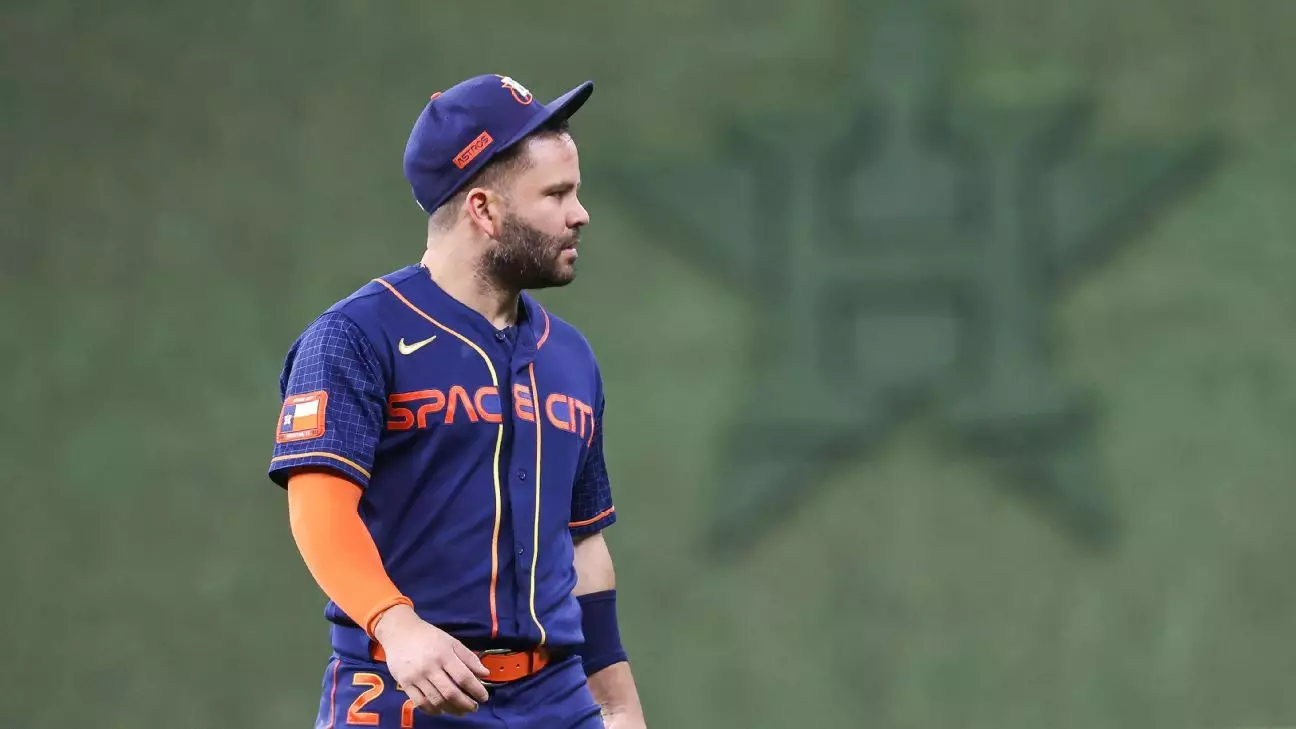As the Houston Astros navigate an evolving roster, one constant remains: Jose Altuve’s commitment to the team. Altuve, the 34-year-old superstar known primarily for his stellar performance at second base, has shown a willingness to adapt by potentially moving to left field. This decision arose from the uncertainty surrounding longtime teammate Alex Bregman, whose departure created new challenges for the Astros. Despite the nostalgia associated with Bregman’s impressive tenure, the team is now focused on spring training, during which Altuve is laboring to familiarize himself with the outfield while maintaining his familiarity with his traditional position.
Signing Brendan Rodgers, a former Gold Glove winner who recently transitioned from the Colorado Rockies, adds another layer to the infield dynamics. The Astros secured this minor league deal, benefiting from Rodgers’ established defensive prowess, which could fundamentally alter their middle infield configuration. As successful teams are often built on depth and versatility, this acquisition is a strategic move as Houston gears up for future seasons.
Astros manager Joe Espada is deliberately remaining non-committal about how the roster will settle into place throughout the season. His focus is on maintaining flexibility and preventing speculation about Altuve’s positioning. “One day at a time,” Espada states, emphasizing the importance of patience and communication with Altuve as they assess the effects of positional shifts on team performance. This approach underscores the delicate balance between tradition and necessary evolution for any team aspiring to contend.
Moreover, the integration of other young talents like Luis Guillorme and Mauricio Dubon will further complicate the inner workings of the team’s defense. The Astros are navigating a multifaceted strategy that includes evaluating potential candidates for various roles throughout the infield. The arrival of Isaac Paredes has added more dimensions, as his versatility could enable the Astros to capitalize on various matchups throughout the season.
Altuve’s extensive history with the Astros is a narrative thread woven deeply into the team’s fabric. His record of 1,765 games at second base, complemented by moments of brilliance including a Gold Glove win, showcases his importance to the franchise. Yet, the impending changes raise questions about how his evolving role might impact both his performance and the team’s cohesion.
Much like the historical precedent set by Hall of Famer Craig Biggio, who transitioned from second base to the outfield for the benefit of the team, Altuve’s possible shift serves as a reminder of the sacrifices players often make for their organizations. Espada’s remarks highlight Altuve’s athleticism and adaptability; however, the success of this transition hinges on effective communication and collaboration between the player and coaching staff.
The Astros’ current situation arises within the broader context of the team’s ambitions post-Bregman. The dynamics at the Red Sox, with Bregman now competing alongside Rafael Devers, illustrate the kind of interconnected transitions that often define baseball as a sport marked by team chemistry and personal relationships. As Altuve looks out to the field, he will have to navigate these evolving dynamics while also establishing an identity that allows him to continue thriving irrespective of his positional adjustments.
Astros supporters await the outcome of these changes with baited breath, hoping that the tradition of excellence will remain intact. Altuve’s resilience and determination set the tone for the team, even as they embark on a new path marked by uncertainty. The upcoming season will not only test Altuve’s skills in unfamiliar territory but also reflect Houston’s ability to adapt to the swirling tides of professional baseball. With trust in his abilities and a deep commitment to winning, Altuve stands as a beacon of hope for a new chapter in Astros baseball, demonstrating that with change comes the potential for renewed success.

